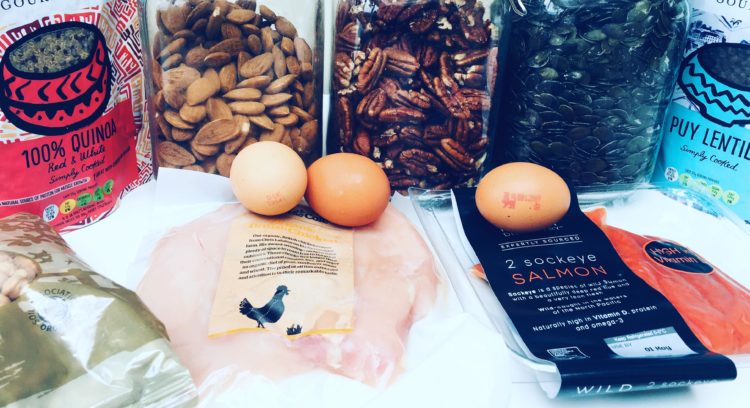Protein: How Much Should You Really Be Eating?
When it comes to nutrition, protein is king. Not only does it provide the building blocks for repairing and creating new cells (including hormones), but it is also the most potent macronutrient for satiety. In other words, protein helps you feel fuller for longer, which can be incredibly powerful if your goal is weight loss or weight management.
But protein isn’t just about appetite control. It’s essential for:
How Much Protein Do You Need?
The amount of protein you should eat depends on your body weight, activity level, and goals.
For example, a woman weighing 65 kg needs between 78–104 g of protein per day, depending on her activity levels
This can be spread evenly across meals, but what matters most is your total daily consumption.
What Does 20g of Protein Look Like?
Here are some everyday foods that deliver roughly 20g of protein (all values are approximate):
-
100 g chicken, turkey, or fish
-
3 large eggs (≈18–20 g)
-
110 g salmon
-
100 g lean steak
-
100 g canned tuna
-
250 g tofu
-
200 g cooked lentils
-
100 g almonds (note: a typical portion is ~30 g)
-
70 g peanuts
-
60 g pumpkin seeds
-
90 g chia seeds
-
230 g chickpeas
-
220 g black beans
-
160 g edamame
-
200 g Greek yoghurt (may vary by brand)
-
600 ml cow’s milk
-
80 g cheddar cheese
-
200 g cottage cheese
-
Protein powders (1 serving = usually 20–25 g — check your label)
Food Sources: Whole vs Processed
Ideally, aim to get most of your protein from whole foods like fish, poultry, meat, tofu, dairy, beans, and legumes. While protein shakes and bars can be convenient, they shouldn’t replace real food. They can also contain a whole host of other ingredients…
Plant-Based Proteins
One important note: many plant-based proteins are incomplete, meaning they don’t contain the full range of essential amino acids your body needs.
-
Exception: quinoa, a plant-based complete protein.
-
If you’re vegan or vegetarian, it’s important to consume a wide variety of protein sources





